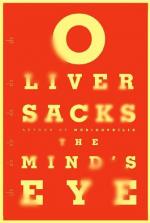|
This section contains 8,190 words (approx. 28 pages at 300 words per page) |

|
SOURCE: Wiltshire, John. “Deficits and Enhancements: Reflections on the Writings of Oliver Sacks.” Cambridge Quarterly 20, no. 4 (1991): 304-21.
In the following essay, Wiltshire provides a survey of Sacks's writings and attributes his success to his “capacity to turn deficits into wonders.”
‘Neurology's Favourite Word is “Deficit”, denoting an impairment or incapacity of neurological function,’ writes Oliver Sacks at the opening of his very successful collection of case studies, The Man Who Mistook His Wife for a Hat: ‘loss of speech, loss of language, loss of memory, loss of vision, loss of dexterity, loss of identity and a myriad other lacks and losses …’ Much of the book's success (the title study has been made into a filmed opera) can be attributed to Sacks's capacity to turn deficits into wonders, to write about cases of sometimes extraordinary human loss in a way that reveals the scarcely visited reaches and capacities of...
|
This section contains 8,190 words (approx. 28 pages at 300 words per page) |

|


